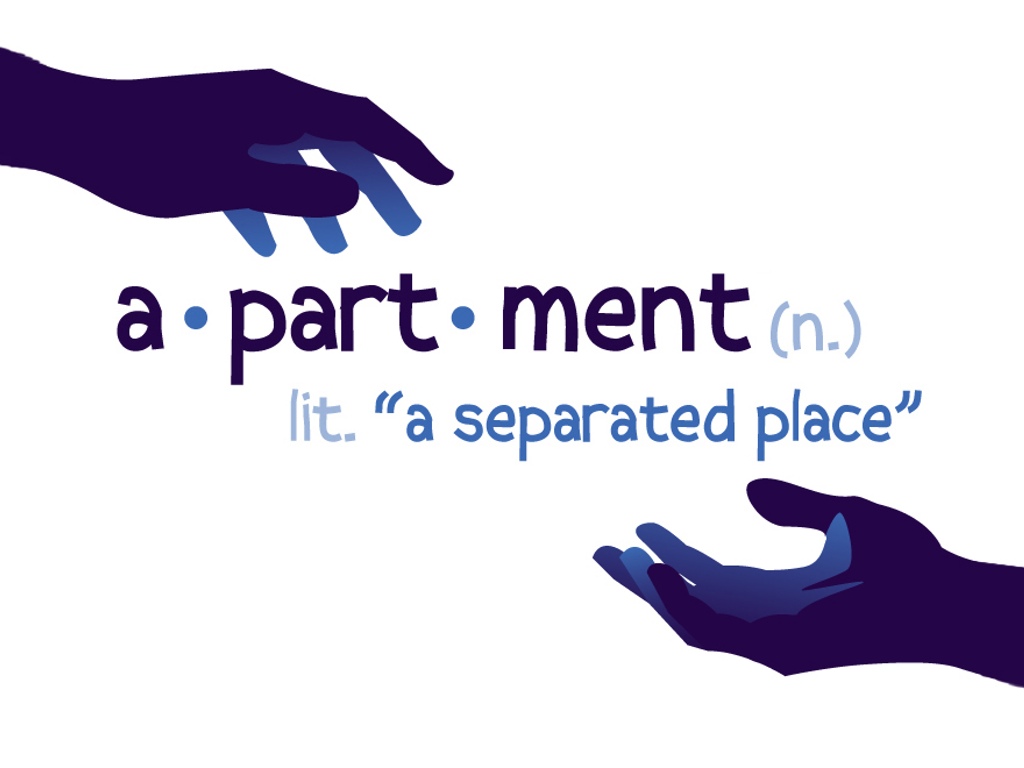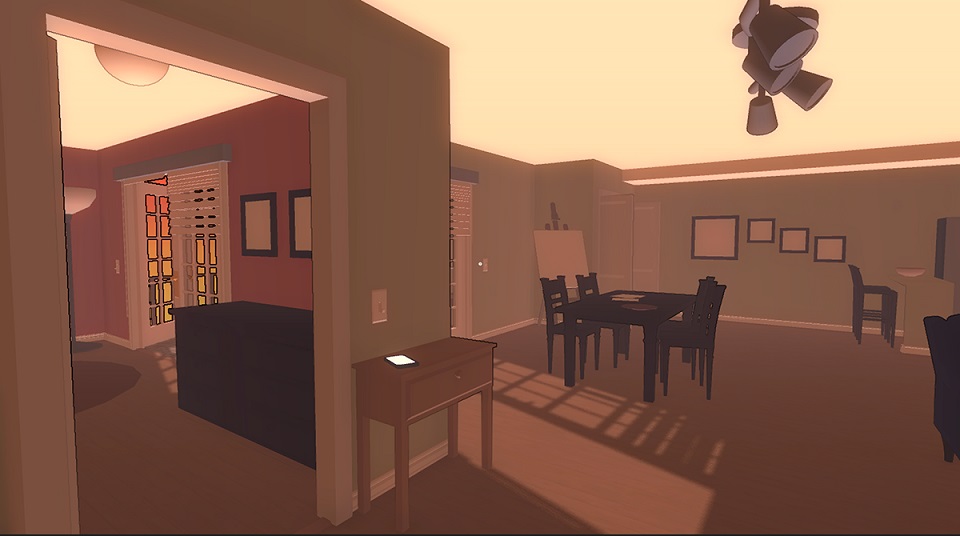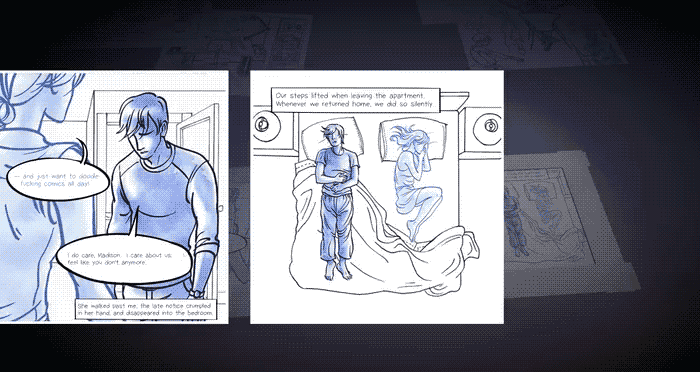One of the main hooks on Apartment’s Kickstarter page is the mention that this isn’t just one person’s story. We also hear the stories of others living in the apartment building. The demo reveals just a few of them, but each brings an interesting – and often quite saddening – story into the mix. Without spoiling any of these narrative vignettes, each deals with a different sort of person and problem. No matter what, human relationships or lack thereof seem to be the thread which ties them together.
For me, the most impressive aspects are twofold: One, the game actually caused emotions to well up within me, and second, that the storytelling presentation was so well orchestrated. I’m not someone who usually feels empathy for video game characters because a great many gaming stories aren’t particularly emotional. Apartment managed to turn a totally average day into a (briefly) sad one when unraveling an old married couple’s story from the perspective of one of the partners. Similarly, memories of my own relationships felt eerily similar to that of another family in the apartment. If nothing else, the game is great at revealing that many of us share close experiences without ever realizing as much.
As for Apartment’s visual design, it doesn’t start out all that interesting in Nick’s apartment. It’s, well, an apartment – albeit with an air of total emotionless stillness. Once players enter the other apartments is where things really take off. Words are scrawled on the walls, coming off gnarled tree branches, and generally provide an engaging method of storytelling. As you walk between written lines they lead you along a path to the tale’s conclusion. Narrative exploration games are becoming increasingly common, so these aspects may not be completely unique. With that said, one vignette employed such unique story presentation that I sat in excited shock for a moment before proceeding forward. Again, not going to spoil it, but there are basically multiple ways in which this game distinguishes itself.
I really love where Apartment seems to be going. Games focused on human, realistic narratives need to exist in greater capacity. Writing emotionally affecting, human tales is the most important factor for the project and they’ve absolutely nailed it. If you’ve yet to play the demo, definitely do so via this link – it runs on Windows, Mac, and Linux. Those who fall for the game as I did should also consider backing Apartment toward its $20,000 goal.





